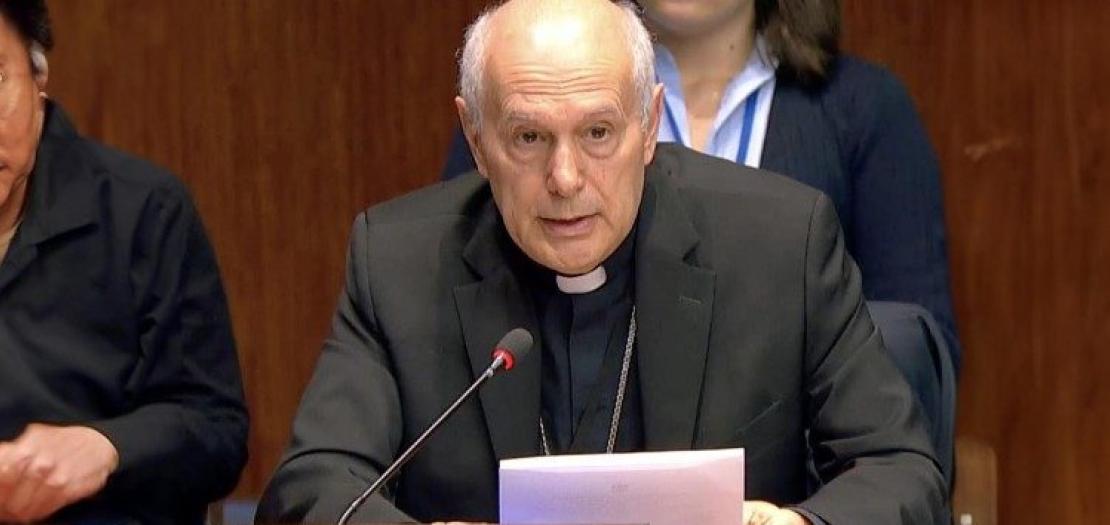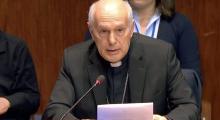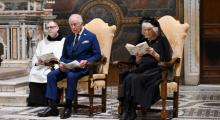Issued by the Catholic Center for Studies and Media - Jordan. Editor-in-chief Fr. Rif'at Bader - موقع أبونا abouna.org

During the First Committee of the 80th Session of the UN General Assembly, Archbishop Gabriele Caccia stressed the importance of eliminating the use of conventional weapons. The Apostolic Nuncio and Permanent Observer of the Holy See explained the ongoing spread and improper use of these arms “poses a significant obstacle to achieving peace and trust in international relations.”
Rather than offering a chance for stability, the free use of conventional weapons fosters distrust, intensifies violence, and erodes inter-State dialogue. With this, the amount of money spent on militaries worldwide has drastically increased—reaching a total of 2.7 trillion US dollars in 2024.
Dedicating this staggering amount of funds to weapons, the archbishop said, “contradicts the pursuit of the common good.”
Continuing his call for an end to the use and misuse of weapons, Archbishop Caccia reflected on the words of Pope Leo, who argued that we continue to betray the global wish for peace with a constant push for armament buildup. Time, money, and energy is dedicated to weaponry rather than providing humanitarian aid and support.
In July, five European countries withdrew from the Ottawa Convention on Anti-Personnel Landmines—citing concerns of a threat from Russia. This treaty, which took effect in 1999, banned antipersonnel mines and required countries to destroy their stockpiles, clear mined areas, and help mine victims.
This is of grave concern, Archbishop Caccia warned, as mines “inflict indiscriminate and enduring harm on individuals, communities and the environment, leaving a deadly legacy long after conflicts have ended.”
According to the United Nations Development Programme, on average, one person is killed or injured by landmines and other explosive ordnance every hour. As anyone can inadvertently activate them, the archbishop stressed they conflict with the principles of humanity and international law.
But this does not only apply to mines, but to all weapons that are used without proper human control and oversight. “Decisions over life and death must not be surrendered to machines”, Archbishop Caccia underscored.
In this context, he explained the Holy See supports the UN Secretary-General’s call for negotiations to create a legal document making it illegal to develop, deploy, or use lethal autonomous weapons by 2026. Before that is finalized, the archbishop called for all States to cease making or using these armaments.
Archbishop Caccia did not stop with mines, but he also addressed the problem of explosive weapons, including cluster munitions and the illicit trafficking of small arms and light weapons (SALW).
Illegally using these weapons leads to devastating consequences particularly affecting the most fragile. The archbishop referenced how children are often recruited into criminal or terrorist groups, “robbed of their innocence and education, and denied a future.”
“The suffering SALW inflicts erodes the very fabric of society and perpetuates cycles of violence and poverty,” Archbishop Caccia highlighted. As a result, the delegation from the Holy See has called on the international community to be completely dedicated to implementing frameworks already in place and is looking forward to the Ninth Biennial Meeting of States on Small Arms and Light Weapons in June.
Closing his statements, the archbishop urged everyone to “abandon the illusion of security through arms, and instead to strive unceasingly to build a peace founded on dialogue, justice and the dignity of every human life.”







